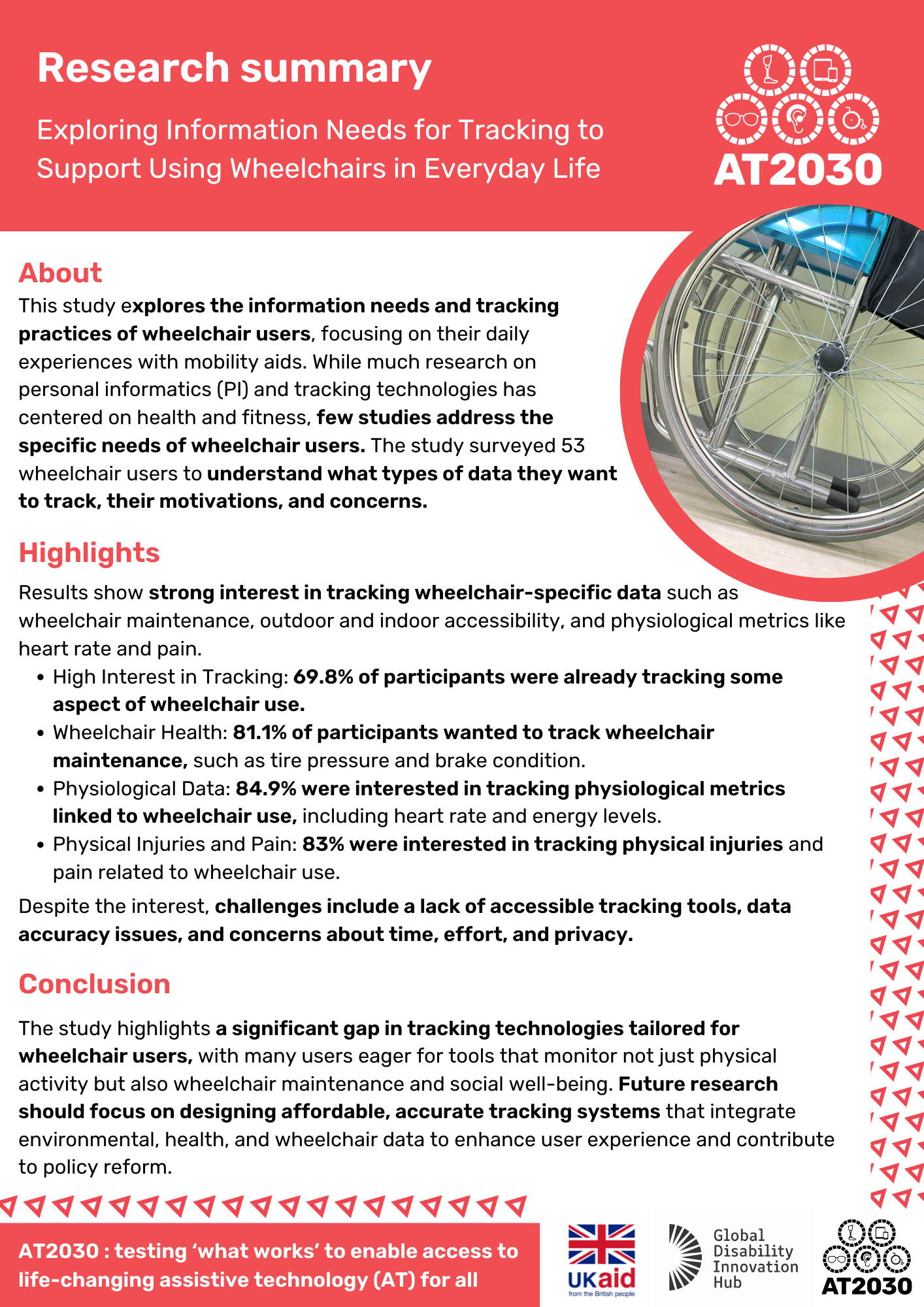Exploring Information Needs for Tracking to Support Using Wheelchairs in Everyday Life: Research Summary
About
This study explores the information needs and tracking practices of wheelchair users, focusing on their daily experiences with mobility aids. While much research on personal informatics (PI) and tracking technologies has centred on health and fitness, few studies address the specific needs of wheelchair users. The study surveyed 53 wheelchair users to understand what types of data they want to track, their motivations, and their concerns.
Highlights
Results show strong interest in tracking wheelchair-specific data such as wheelchair maintenance, outdoor and indoor accessibility, and physiological metrics like heart rate and pain.
- High Interest in Tracking: 69.8% of participants were already tracking some aspect of wheelchair use.
- Wheelchair Health: 81.1% of participants wanted to track wheelchair maintenance, such as tire pressure and brake condition.
- Physiological Data: 84.9% were interested in tracking physiological metrics linked to wheelchair use, including heart rate and energy levels.
- Physical Injuries and Pain: 83% were interested in tracking physical injuries and pain related to wheelchair use.
Despite the interest, challenges include a lack of accessible tracking tools, data accuracy issues, and concerns about time, effort, and privacy.
Conclusion
The study highlights a significant gap in tracking technologies tailored for wheelchair users, with many users eager for tools that monitor not just physical activity but also wheelchair maintenance and social well-being. Future research should focus on designing affordable, accurate tracking systems that integrate environmental, health, and wheelchair data to enhance user experience and contribute to policy reform.
